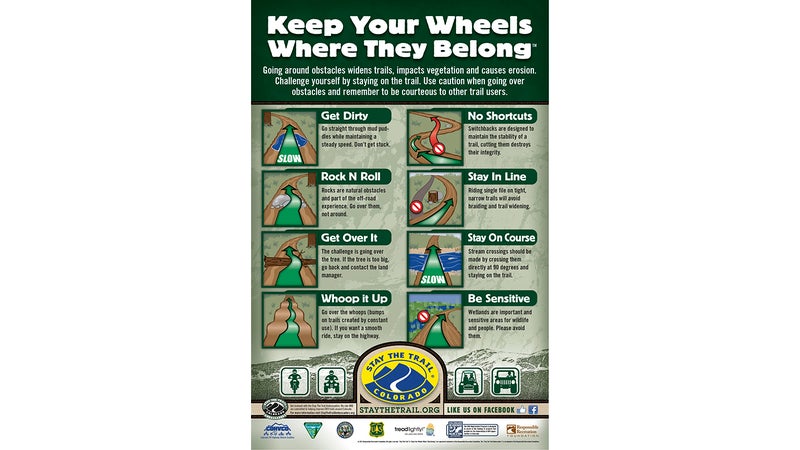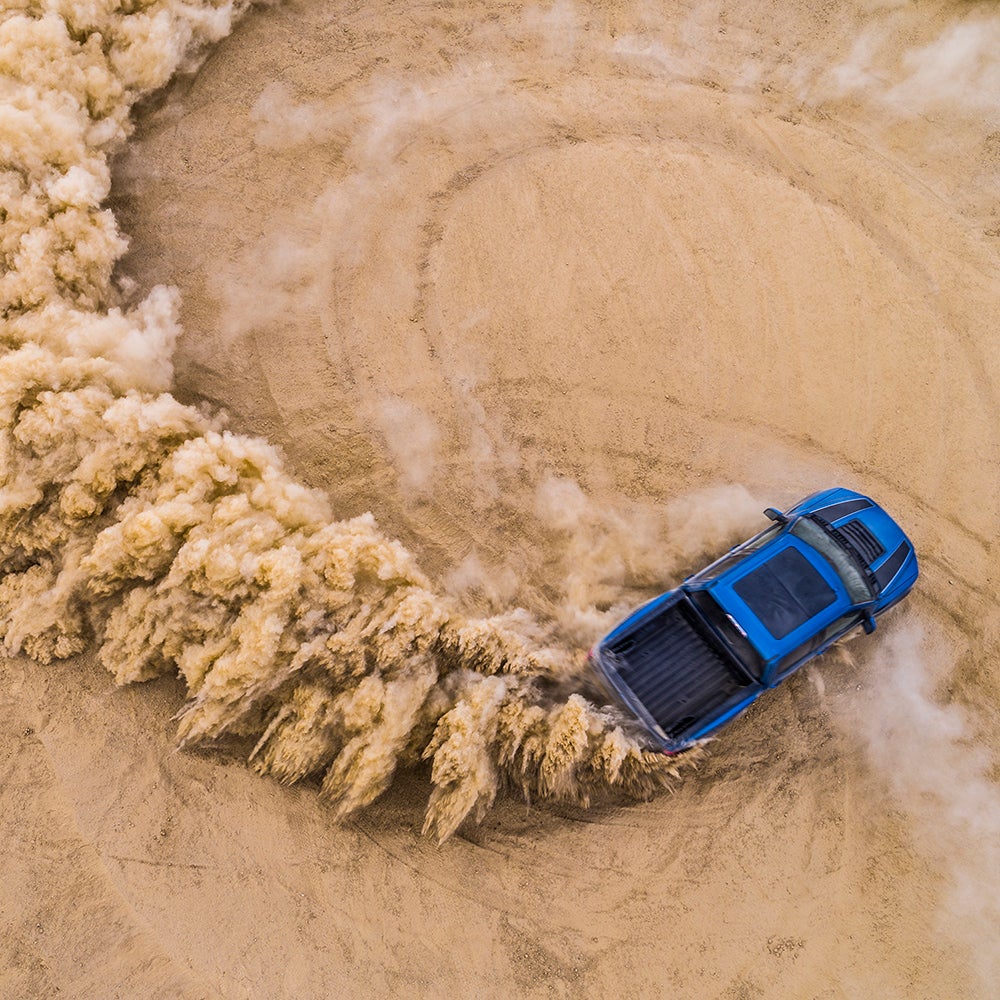Every time we publish an article about a truck, dirt bike, or off-road vehicle, some of our readers protest. Off-roading just doesn’t square with a lot of people’s vision of responsible outdoor recreation. I think those people have it wrong. Allow me to explain.
Off-Roaders Don’t Actually Go Off-Road
Probably the biggest misconception about “off-roading” is that people just go out and drive wherever they please. This simply isn’t true. Virtually all off-road driving takes place on designated dirt roads, trails, or in special off-highway vehicle (OHV) areas. In fact, “off-highway” (as in off-pavement) is a much more accurate name for the collection of sports that make up off-roading—it just doesn’t have the same ring to it.
I spoke with Sam Logan and Molly Chiappetta of , a nonprofit that promotes responsible, ethical off-highway vehicle use in that state. They spend their time visiting OHV trailheads and events and informing trail users of environmentally responsible ways to enjoy their vehicles. They say that staying on-trail is the most important thing off-roaders can do to minimize their impact—and that the vast majority of participants are good about doing that. Exact statistics on how many off-roaders leave designated trails are impossible to calculate, but Chiappetta describes them as “the one percent who give us all a bad name.”
“Many roads or trails have been in place for decades,” Chiapetta says. Some even started as wagon tracks in the 1800s. The soil is compacted and stable, making it able to stand up to the weight of vehicles passing over it. On such routes, off-roaders can safely travel into or through fragile ecosystems without further damaging them, she says.
“If a hiker starts a devastating fire, the world at large doesn’t get the idea that hiking is a negative activity,” says Duane Taylor, executive director of the , referring specifically to last year’s Eagle Creek Fire, which was started when a teenage day hiker threw fireworks into dry brush in Mount Hood National Forest. Yet readers don’t complain about our hiking coverage.

The Environmental Footprint Isn’t as Bad as You Think
So we’ve established that most off-roaders aren’t tearing up fragile landscapes. But what about the deleterious effects of the fuel the vehicles burn, you might ask?
Sure, I do burn a lot of fuel in my old Land Rover, which averages about 11 miles per gallon when I take it off-road. During a typical camping trip in the Land Rover, I’ll do roughly 100 miles on dirt. According to the calculator on , the off-road portion of that trip (I’m not including highway miles here, since I assume we all drive somewhere occasionally to pursue our hobbies) nets .08 metric tons of carbon dioxide emissions.
The thing is, I don’t actually take the Land Rover off-roading all that often. More often, I’ll fly, visiting family, going on work trips, taking vacations, or this year, buying our first house with my girlfriend in Montana. To do that, we’ve flown from Los Angeles to Bozeman five times this year, a trip that nets .44 tons of CO2 for each round-trip.
One of the main reasons for that move is to enable us to spend more time outdoors without the need to get on an airplane or log tons of highway miles. We will actually be reducing our carbon footprint substantially by off-roading more and flying less.
Hands down my favorite thing to use the Land Rover for is hunting, which replaces store- or restaurant-bought meat in our diet with a healthier, wild-caught alternative. It also helps reduce our carbon footprint even further: 2.2 pounds of beef creates of carbon pollution. The average American eats every year. If I replace that beef in our diet with elk and venison, it offsets 2,200 miles of off-roading. I will do far less than that this fall by netting far more wild game.
My point here is that it’s the regular cycle of consumption that accounts for the majority of pollution we create, not any hobby that we’re only able to enjoy infrequently.
You Go Off-Road, Too
According to the U.S. Forest Service, in using its system of OHV trails to hunt and fish. In fact, 74 percent of people who off-road in our national forests are doing the same at some point in the year. And it’s not just those activities, which also suffer from inaccurate perceptions: 11.4 percent of people using those OHV trails are going backpacking, 22 percent are going mountain biking, 38 percent are birding, and 76 percent are enjoying time with their families.
“As a whole, OHV users are more active in every single recreation activity relative to the general U.S. population,” states the USFS. “For some activities, OHV users participate at more than twice the national rate.”
“The people who participate are not who you think they are,” says Taylor, of the National Off-Highway Vehicle Conservation Council. “They’re families. They’re people who are visiting remote areas that are virtually inaccessible by any other means. And just like you, they’re people enjoying nature.”
The point of this article isn’t to convince you that off-roading somehow has less impact on the environment than going for a hike—it doesn’t. It’s simply to argue that the hobby doesn’t deserve its reputation as a villainous scourge on the planet. Our larger community of outdoor enthusiasts and nature lovers is too often guilty of denigrating otherwise like-minded people who look different from them or enjoy nature in different ways. We shouldn’t do that. Especially right now with our public lands under threat, us outdoorsy types need to stick together and find common ground from which we can defend the natural world we all love.


